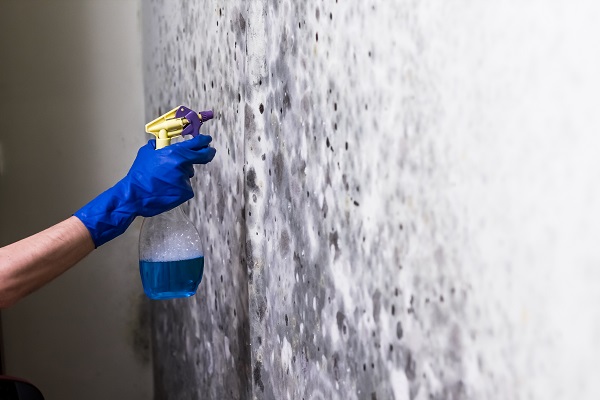Unfortunately, mold in your home is sneaky and can creep up on you when you least expect it. For a healthy home, monitoring and eliminating mold is crucial. Commonly, household mold develops because of water damage or a damp surface that isn’t regularly cleaned. Spores are known to stay dormant until they have the moisture and nutrients they need to bloom.
Common Mold Locations
Bathroom:
The bathroom is the most common hotspot for mold! Check toilet seals, wet walls, shower curtains, beneath sinks, and ESPECIALLY the shower. To keep mold from penetrating the tiles, you need to ensure your caulking and grout are in good shape.
Kitchen:
A slow leak can go undetected and be a breeding ground for mold. A leak under the sink, behind the fridge, or around the dishwasher can likely lead to a mold problem. Try to check these areas monthly.
Carpeting:
Mold can become active in carpeting because of flooding, moisture from concrete foundations, or even spills. The carpet that houses mold will need to be replaced.
Windows:
Condensation can build up on your windows as temperatures fluctuate, and spores hanging around can gradually take hold and bloom into a black, spotty mess. Mold is more common on shaded windows or windows that are often covered by curtains.
Drywall:
Unfortunately, the materials in drywall can promote mold growth when moisture is involved. To uncover the problem, you will often have to remove considerable sections of drywall to identify and remove the mold. Your nose is your best guide here.
Basements:
Basements meet all the qualifications for a perfect growth area for mold: dark, proximity to the earth, and hidden from view. Be sure to create proper drainage and ventilation to discourage the growth of mold.
The best way to locate mold is to search for leaking pipes and dry out wet areas in your home. To help prevent mold growth, look into an air purifying system, such as a “Quiet Cool Advanced Whole-Home Fan,” which exchanges the home’s indoor air and replaces it with fresh outdoor air in minutes. Learn more about Quite Cool Home Fans.
Effects of Mold on Your Health
Many people are sensitive to molds, but mold exposure does not always present a health problem indoors. Although, a moldy environment does worsen indoor air pollution, which is a risk factor for certain respiratory conditions.
Molds can produce several substances that can be harmful. Allergens, irritants, and mycotoxins are potentially toxic substances that can affect individuals susceptible to them. The EPA says that exposure to molds can irritate individuals’ eyes, lungs, nose, skin, and throats, even if they do not have a mold allergy.
I Can Help
I enjoy every aspect of helping individuals buy and sell homes, even if it is dealing with mold! If you have questions or are ready to make a move, contact me at (928) 710-9148.


 Facebook
Facebook
 X
X
 Pinterest
Pinterest
 Copy Link
Copy Link


